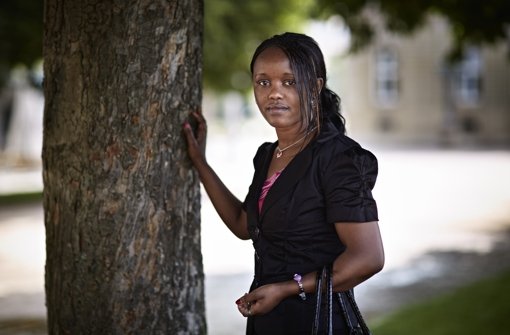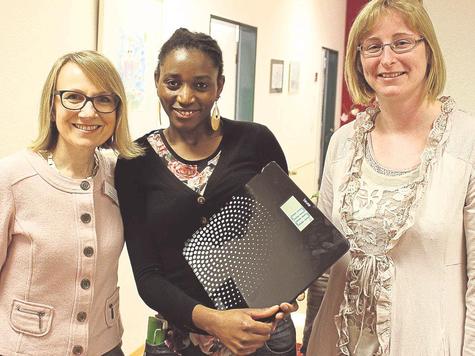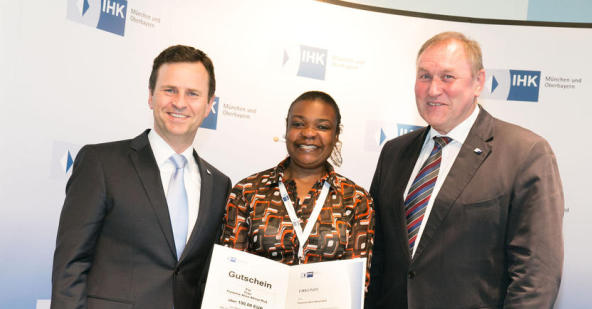 After reading about the nursing program in Tanzania, many wondered why there wasn’t such a program in Kenya. Well, it seems there is one.
After reading about the nursing program in Tanzania, many wondered why there wasn’t such a program in Kenya. Well, it seems there is one.
The African Medical and Research Foundation (AMREF) will be running a program in Kenya that aims to increase the number of health care givers in Kenya. Currently with a population of over 40million, Kenya has only 29,000 health care givers which is a very small number. This new program aims to double the number of health care givers by 2015.
The African Medical and Research Foundation (AMREF), in collaboration with the Nursing Council of Kenya (NCK) and Accenture, a global management consulting company, provided an innovative solution to this problem. They devised and implemented e-Learning courses on several aspects of health workers’ training, such as a diploma nursing course. The eLearning Nurse Upgrading course came into being as a result of a desire by the Nursing Council of Kenya to improve the standards of patient care in the country by equipping enrolled nurses with skills to manage new and re-emerging diseases. This would not only address the critical shortage of qualified nurses in Kenya, but it would also result in improved health services, particularly to disadvantaged communities
The program started in 2005 and is on going. It is a modular course and for those without internet access can get it in CDs.
Duration: 2yrs
Intake: Twice per annum
Content:
Content is grouped into 4 modules:
1. General Nursing: Professionalism and fundamentals in nursing; adult nursing; paediatric nursing; Intensive care nursing; theatre nursing; Geriatric nursing and introduction to bio-medical sciences.
2. Midwifery and reproductive health
3. Community health nursing
4. Specialized areas in nursing: Psychiatric nursing; teaching methodology; introduction to research; sociology and nursing management
Structure:
The programme commences with a one-week induction period, including information, communication technology training.
Each module involves 6 months of distance-based self-study to complete, including elements of clinical practice at the workplace. Each module is accompanied by 2 weeks of face-to-face residential tutorials, plus 2 telephone tutorials.
Assessment on each module includes: 4 emailed assignments; mid-module examinations; end of module examinations. Both mid and end module exams have computer based and written exams.
In addition to completion of the modules of study, they are expected to complete 42 weeks of clinical practice during the modules.
Once the course is completed students sit the NCK ‘Basic Kenyan Registered Community Health Nursing Exam’.
Fees:
Fees are set by individual teaching schools and range between:
Public: US$354 – $480 per module
Private: US$615 – $846 per module
Faith based: US$538 – $692 per module
AVNS: US$1500 (whole course)
Students are required to pay the fees ($1500 – this varies slightly from institution to institution as they are paid directly to nursing schools). Some facilities pay the fees for the nurses (e.g. Kenyatta National Hospital). In response to the identification of the cost being a barrier to enrolment, AVNS is in the process of setting up a scholarship scheme.
Support:
Students are based at one of 32 medical training hospitals and nursing schools around the country, using 105 regional training centres (provided with computers). They receive 2 weeks of face-to-face residential tutorials for each module (i.e. 2 weeks for every 6 months of study).
Supplementary academic support includes:
· 2 telephone tutorials per module;
· local face-to-face instructors at local nursing school or teaching hospital;
· academic reminders via Mobile SMS text;
· written feedback on module assignments
· access to the AMREF Resource Centre for print and online materials
· E-mail tutorials
The total number of tutors and mentors in the eLearning Programme now stands at over 400. These are drawn from 32 schools across the country and were trained in IT skills and eLearning implementation. Mentors comprise of mostly registered nurses working in health facilities. During the Training of Trainers (TOT) sessions, mentors are trained to assist the student nurses in the course of their training.
Administrative support includes:
· administrative updates sent via Mobile SMS text;
· telephone and email enquiry support and referral from AVNS Administrative Office
· local and national specialist IT support to AMREF students for laptop problems
· provision of limited numbers of recycled laptops to selected students





